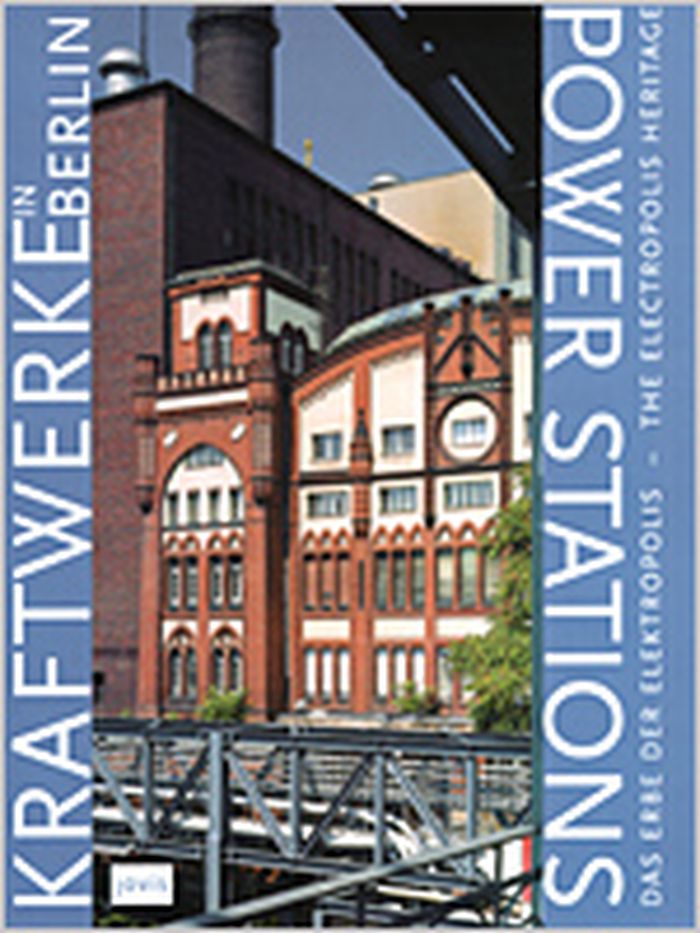$44.00
(disponible sur commande)
Résumé:
In this electrifying showcase of Max Dudler's power stations, Energy Buildings traces the public works constructions of a man who has mastered the architectural square. Credited as one of the formative minds behind the New Berlin, Dudler's residential work at Gendarmenmarkt, and his transformer substation at Lutzoplatz, reveal cubes that are based in a rational(...)
Architecture, monographies
septembre 2007, Zürich
Max Dudler: Energy Buildings Bewag/Vattenfall
Actions:
Prix:
$44.00
(disponible sur commande)
Résumé:
In this electrifying showcase of Max Dudler's power stations, Energy Buildings traces the public works constructions of a man who has mastered the architectural square. Credited as one of the formative minds behind the New Berlin, Dudler's residential work at Gendarmenmarkt, and his transformer substation at Lutzoplatz, reveal cubes that are based in a rational architectural evaluation of what is absolutely necessary. Four walls. No frills. As evidenced in the 22 plans included in Energy Buildings, Dudler's core strength is his conceptual backbone, where projects for Vattenfall Europe AG begin as drawings on a page. Beginning with his work for Bewag in the late 80s, the book crisply describes the rise of an architect of the new Germany, a place where an architectural idea is only as strong as the gracefulness of its execution.In this electrifying showcase of Max Dudler's power stations, Energy Buildings traces the public works constructions of a man who has mastered the architectural square. Credited as one of the formative minds behind the New Berlin, Dudler's residential work at Gendarmenmarkt, and his transformer substation at Lutzoplatz, reveal cubes that are based in a rational architectural evaluation of what is absolutely necessary. Four walls. No frills. As evidenced in the 22 plans included in Energy Buildings, Dudler's core strength is his conceptual backbone, where projects for Vattenfall Europe AG begin as drawings on a page. Beginning with his work for Bewag in the late 80s, the book crisply describes the rise of an architect of the new Germany, a place where an architectural idea is only as strong as the gracefulness of its execution.
Architecture, monographies
$35.00
(disponible sur commande)
Résumé:
Berlin was once the biggest industrial area in Europe, home to large-scale enterprises like AEG and Siemens. Bewag, the Berlin electricity provider, laid the foundations for a modern power supply together with these companies. Power Stations in Berlin considers numerous local power stations as an integral part of the city's architectural heritage, from the period of(...)
Structures d’ingénierie
juillet 2004, Berlin
Power stations in Berlin : the electropolis heritage
Actions:
Prix:
$35.00
(disponible sur commande)
Résumé:
Berlin was once the biggest industrial area in Europe, home to large-scale enterprises like AEG and Siemens. Bewag, the Berlin electricity provider, laid the foundations for a modern power supply together with these companies. Power Stations in Berlin considers numerous local power stations as an integral part of the city's architectural heritage, from the period of industrialization at the beginning of the 20th century until now, giving a comprehensive overview of Berlin as an industrial city in the process. The question of how to reuse these unique plants, is raised; the right balance between preserving the facilities and finding a new economic use for them is crucial. The book includes essays by Klaus Bürgel, Hilmar Bärthel, Hans-Achim Grube, Christina Keseberg, Matthias Dunger, Herbert Strobel, Jörg Haspel, and Hubert Staroste
Structures d’ingénierie

